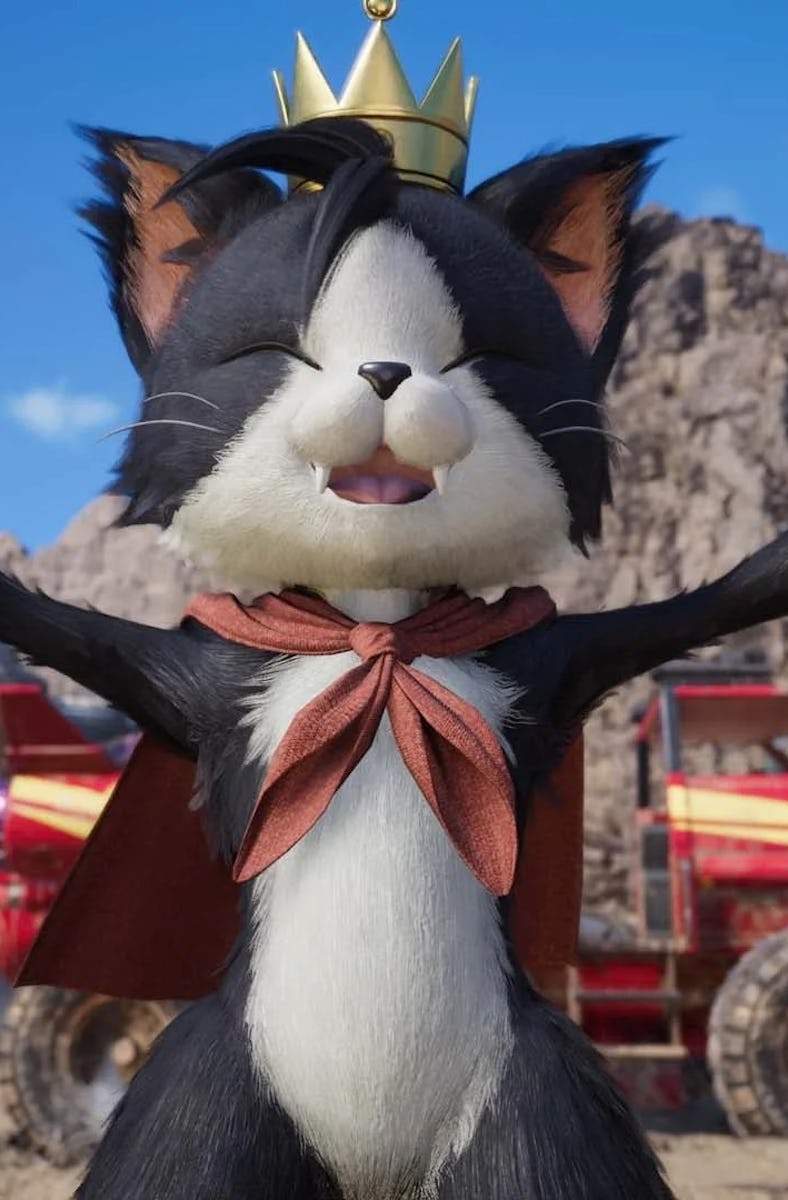Final Fantasy 17 Needs to Buck the Series' Biggest Trend
More goofs and gags, please.

Between Final Fantasy XVI, Rebirth, and a wealth of spinoffs, it feels like we’re entering a new golden era for the storied franchise. Massive games and epic stories have pushed the series forward in experimental new ways, but it’s also made me realize something: Final Fantasy’s comedic strength has been underutilized for years. Hopefully, the eventual Final Fantasy 17 veers off in a wildly different direction, with a back-to-basics approach that fully embraces the light-hearted strengths of the series.
Final Fantasy games have always been built on characters, but more often than not those characters are involved in tragic events or sweeping, sociopolitical epics. If you look at the last decade of the franchise, it’s been dominated by those kinds of stories.
Rebirth’s side quests, in particular, are chock-full of surreal humor, like the Middle Manager who becomes obsessed with minigames and forces Cloud to “party.”
In terms of narrative structure, the tragedy has formed the basis for XIII, XV, XVI, Stranger of Paradise, Shadowbringers, and more. Then there are the political dramas with games like XII and Stormblood. Final Fantasy is uniquely fitted to these genres, but recent titles have also proven it has a penchant for pure light-hearted comedy, stories that don’t get overly serious or involved.
The two things that have drawn this idea to the forefront of my mind are Final Fantasy 7 Rebirth and the Manderville quests in Final Fantasy XIV, two experiences that utterly revel in absurdist humor.
Rebirth obviously has tragic elements, the ending particularly, but the majority of the experience is a light-hearted affair. While it builds out teh budding relationships of the party, Rebirth constantly leans into surreal comedy. One minute you’re seeing Red XIII moonwalk whil pretending to be a human, and the next you're on a Ferriss Wheel date with two grumpy old men and a talking cat. Rebirth more often than not feels like a fever dream that keeps layering in more humor, more minigames, more twists, but it’s what makes the game so compelling. There’s always a sense of wonder or surprise behind every corner.
The Hildibrand Adventures in FFXIV fit this same idea to a tee, a deviously silly series of quests that are all about slapstick humor. If you don’t play XIV the story-focused questline follows an “Inspector Extroairdinare” named Hildibrand Manderville who, with the help of his sidekick Nashu, solves an increasingly strange series of mysteries. The latest Hildabrand adventure added post-Endwalker dives into alien abductions, cloning, and conspiracies, in an absurd X-Files-inspired story.
Hildabrand is an ingenious use of slapstick Three Stooges-esque humor, in an otherwise narratively dark story.
What really makes Hildabrand’s quests tick, however, are the way they embrace the stilted, janky animations of the MMO deliberately for humor. Hildibrand flies through the air and his cheeks flap like the Loony Tunes, or a bomb explodes and characters are coated in black soot like Tom and Jerry. It’s cartoon-esque in every sense, but again that level of utterly absurd humor is what makes Hildibrand such a fan favorite.
Of course, these two examples don’t just live in a vacuum, as both Rebirth and Hildabrand find their roots much further back in the series. Final Fantasy 5 was the original comedic entry, the impact point for all of the franchise’s humor. In that game, there’s literally a plot point where the villain, who’s a tree, puts his spirit into a splinter and sticks into a character’s foot to travel to another universe. You can draw a clear line from FF5, to elements of FF9, to spinoffs like World of Final Fantasy, and then even the Bravely Default series.
While Rebirth and XIV further the comedic undertones of the series, the point is that Final Fantasy 17 doesn’t have to be some massive world-saving adventure. The heart of the series is experimentation, always pushing the envelope and new ideas. To that end, I’d love to see the next mainline entry be more restrained, a project with a smaller scope, and a story with a more personal comedic slant.
Final Fantasy 5’s villain is quite literally a sentient tree, and he fights a talking turtle at one point.
Square Enix has proven, time and again, that Final Fantasy can be anything, and the best moments for the series are when it strikes out in wild new directions. While the sprawling tragic epics are great, variety is the spice of life, as they say. It’s high time Final Fantasy takes a step back, looks at its history, and tries something different.